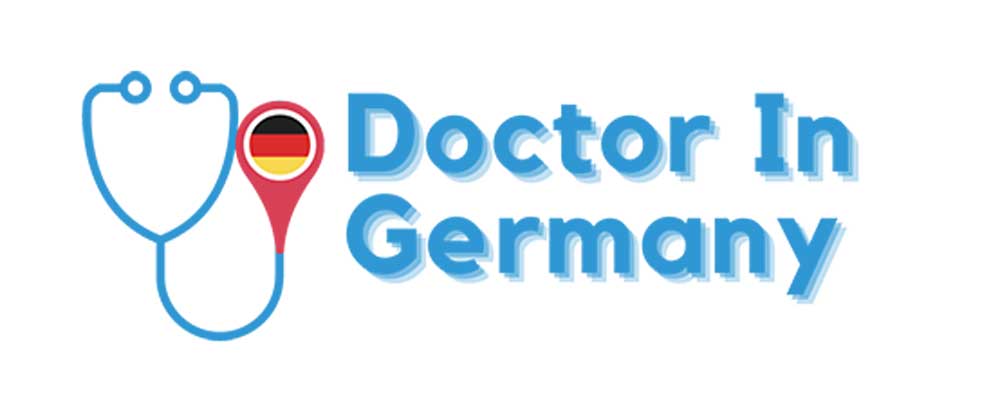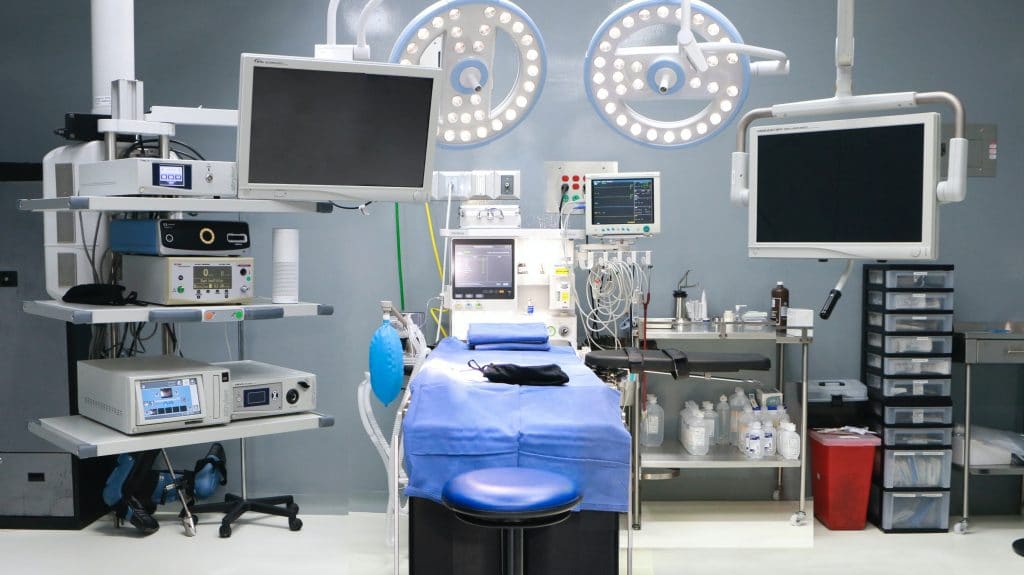A newbie’s guide to living and working as a doctor in Germany in 2023
Table of Contents
Introduction
Greetings current and aspiring doctors! If you’re here, you’re probably curious about what life looks like when you’re working as a doctor in Germany. Some of these might be among the points that you’re likely thinking of and need information on:
● What is life like in Germany?
● What are the requirements to work as a doctor in Germany?
● What are Approbation and Berufserlaubnis?
● What are the average salaries for various types of Doctors in Germany?
● What are the scopes of various branches of medicine?
● Which state should I choose to live and work in?
● How do private clinics work in Germany?
● What are some of the major hospitals in Germany?
● What are some common problems Doctors face in Germany?
Whew, those are a lot of questions. Don’t fret, we have answers to all these and more in this article. Let’s proceed and take a sneak peek into life as a doctor in Germany!
What is Life Like in Germany?
As an aspiring doctor who wants to live and work in Germany, you should have an idea of what your new country will be like. Every day in Germany presents a new exciting challenge and adventure. Life in Germany manages to strike the balance between the hustle-bustle of the city and the calm countryside. You get the best of both worlds here. With excellent stats in terms of safety, education and healthcare, Germany is a wonderful country to start a family in. Also, did I mention that healthcare is state-sponsored in Germany? Yes, yes it is.
The Germans are also particular about following rules, whether they are written or unwritten. If you’re someone who values discipline and honest work in your life, you’ll find plenty of people with similar views in Germany. On the same lines as the previous point, public transport in Germany is generally on time and well maintained. This will ensure a stress-free inter-city traveling experience and will make your daily commute (if done by public transport) easier.
Employees in Germany typically enjoy fairer treatment than in other parts of the world. They’re backed by special organizations and are not completely at the mercy of their employers.
You’ll be pleased to know that Germany has one of the best standards of living in the world. German cities like Frankfurt, Munich, and Dusseldorf made it into the Top Ten Cities to Live in (2019). I’ll list down some quick stats about Germany when compared to the rest of the world.
➔ According to the Global Peace Index 2019 rankings, Germany is the 22nd most peaceful country to live in, among the 163 listed.
➔ Germany ranks 20th according to the Societal Safety and Security Domain
➔ The 2021 World Happiness Report lists Germany as the 7th-happiest country in the world.
➔ Germany is 8th on the Quality of Life Index, according to the UN HDI (Human Development Index)
Life for Doctors
As a doctor, you’ll find life and work in Germany to be much better than in most other countries. Germany accepts foreign doctors happily, as long as they meet the required criteria. A good point to note about Germany is that the healthcare system is well-financed and well-equipped. Along with the medical system, the insurance system is also pretty good.
As with any other country, being a doctor, you will have to work hard and put in plenty of effort. The difference here is that the effort you take here will be rewarded well and compensated fairly. German doctors, on average, make around 65,000 Euros per year as an Assistenzarzt (resident doctor) and 80,000 Euros as a Facharzt (specialist doctor).
Germany is currently in dire need of doctors and thus, there is a high demand for them. To mention a few fields, there are shortages of specialists in specific fields like Orthopaedics, Anaesthesiology and Dermatology. However, doctors are in demand in all specialties.
Some points to pay attention to are the language and social barriers. You have to be fluent and proficient in the German Language to be able to practice medicine in Germany. You might find it easier to practice in big cities as compared to smaller towns in the countryside, considering various socio-economic factors.
Requirements for working as a Dr. in Germany
Let’s get down to business. To work as a doctor in Germany, there are certain requirements you have to fulfill. We’ve noted down some of the highlights regarding these requirements.
Approbation
As with any other country in the world, doctors require a medical license to practice medicine in Germany. The German medical license is called the Approbation. The Approbation grants the receiver complete access to practice medicine in the country. It is valid throughout the country and will last for a lifetime. The procedure for getting an Approbation can take some time, and the longer it takes, the longer it will take for you to be able to begin working and earning. To ensure that you can work and manage your finances during that period, you can opt for a temporary medical license, the so-called Berufserlaubnis.
Berufserlaubnis
A Berufserlaubnis is a professional permit issued on a temporary basis, which is valid for two years. With the help of this temporary license, you can work under a doctor in Germany holding a valid Approbation, till your own Approbation is processed. It can only be issued after a job offer in almost all states. The Berufserlaubnis, however, does not allow you to open a private practice and it is also valid only in the state in which it has been issued.
Additional Requirements
To get an Approbation or a Berufserlaubnis, there are some additional certifications and requirements. These are the major few.
Firstly, you must be certified in the German Language, at B2/C1 level, using CEF (Common European Framework). Familiarizing yourself with German is of utmost importance to ensure a fruitful career in Germany. Moreover, you have to pass the German professional language exam (Fachsprachprüfung), which will test your knowledge of German Medical Terminology and Clinical Communication Skills.
Next, candidates must apply for the license to practice medicine to the Ministry of Health/German Medical Council. Additionally, you must have a clear police record from your home country. To add to that, both EU and Non-EU native candidates must get their diplomas recognized by the German administration.
In the event that your diploma is not recognized as automatically equivalent according to German standards, you will have to give an equivalence exam (Gleichwertigkeitsprüfung), which will check your skills and make sure they’re equivalent to those of German doctors. You may breathe a sigh of relief to know that you have the option to repeat this exam if required.
Quick Tip
Try doing a hospitation (internship or observationship) in the same hospital where you want to work after getting your Approbation. This will help you in getting acclimated to the inner workings of the hospital and will make your life and work after getting your medical license much easier.
Various Specializations and Their Average Salaries
It’s no secret that doctors who specialize in particular fields have a higher income than general physicians. Apart from the obvious financial bonus, specialized doctors also tend to have more exciting and fulfilling work, along with more in-depth knowledge about their field of choice. This is not to take anything away from general physicians, after all, it is them that we visit often when we’re sick.
An integral part of the Residency Medical Training in Germany is specializing in a particular area of medicine. In Germany, there are 30 varying medical fields to select from for your Specialist Medical Training. Specialist Medical Training in Germany requires about 5 to 6 years to complete and is conducted at clinics at universities, medical facilities and hospitals which have the authorization to conduct it. Each state in Germany has varying rules and regulations regarding Specialist Medical Training.
Making a definitive decision might be difficult, with about 30 different areas to choose from. To make things easier, we’ve made a list of the average salaries for doctors in various fields in Germany (in Euros):
● Assistenzarzt (resident doctor) (in hospitals): 65,000 per year
● Head Physician (in hospitals): 100,000 to 280,000 per year
● Assistant Medical Director (in hospitals): 100,000 to 130,000 per year
● Radiologist (private practice): 850,000 per year
● Orthopaedic Specialist (private practice): 311,000 per year
● Anaesthesiologist (private practice): 230,134 per year
● Dermatologist (private practice): 213,577 per year
● General Surgeon (private practice): 281,000 per year
● Gynecologist (private practice): 217,000 per year
● Paediatrician (private practice): 228,000 per year
These fields, alongside paying well, also have a bright future in Germany and are projected to grow rapidly in the coming years. So take your time to go through each option that works well for you, both interest-wise and financially.
Which State Should I Choose?
While any state in Germany is great to start your practice in, some states have been observed to be better options than others, and are promoting and inviting doctors to work there.
States like Mecklenburg-Vorpommern, Thuringia, Rhineland-Pfalz, Nordrhein-Westfalen, Schleswig Holstein, and Bavaria have created special subsidies and incentives for doctors to start practices in their respective states.
How Do Private Clinics work?
The heart yearns for freedom, and doctors’ hearts are no different. If being constrained to a residency in a hospital seems too restrictive for you, you can always start your own private practice. Private practices, when compared to working in hospitals, have a calmer, more relaxed atmosphere. You get to work at your own pace and are able to give personal and in-depth attention to your patients.
Doctors who wish to start their own private practice, have to get permission from the Public Health Fund. This allows them to treat patients who are insured by the Public Health Fund. The Public Health Fund regulates the number of doctors working in a particular area.
Commonly, cities have a high concentration of doctors, and rural areas report a shortage of them. Owing to this, many German states have introduced subsidies and incentives to attract new doctors to start private practices. This makes opening a private practice in rural areas more appealing, due to the higher demand. The average yearly revenue of a doctor with his own private practice (Niedergelassener Arzt) is 166,000 Euros.
A couple of caveats to this option might be the obvious language and social barriers that you will have to overcome, along with the requirement of working harder to generate more income in rural areas.
Top German Hospitals
Does opening and running your own clinic sound hectic and like it’s too much work? We understand, perhaps working as a doctor at a top hospital is more your style. We don’t blame you, working at a hospital is indeed a very attractive option.
To give you an idea of which hospitals are among the best in the country, here’s a short list of the Top 10 Hospitals in Germany (2020) according to Newsweek. These hospitals provide excellent care to their patients and are satisfying places to work at for ace doctors.
- Charité – The Universitätsmedizin Berlin: Berlin
- The Universitätsklinikum Heidelberg: Heidelberg
- The Universitätsklinikum Hamburg-Eppendorf: Hamburg
- The Klinikum der Universität München: Munich
- The Medizinische Hochschule Hannover: Hanover
- The Klinikum rechts der Isar der Technischen Universität München: Munich
- The Universitätsklinikum Köln: Cologne
- The Universitätsklinikum Freiburg: Freiburg
- The Universitätsklinikum Regensburg: Regensburg
- The Universitätsklinikum Carl Gustav Carus Dresden: Dresden
Common Problems faced by Doctors in Germany
Well, while Germany is a fantastic option for doctors all around the world, nothing’s perfect. There are a few hurdles that you will have to overcome and some problems you might face while working as a medical professional in Germany, as with anywhere else in the world. Preparing for these “difficulties” will help you to transition over to living and working in Germany easily. Some of these issues are as follows.
On average, the only considerable issues you might face are related to social and lingual differences between your native country and Germany. This adjustment can be made smoother by learning more about the culture in Germany and learning the German language prior to coming to Germany. Learning German will not only help with adjusting to life in Germany, but it will also make the process for getting the medical license quicker.
Conclusion
We hope this article has answered some of your questions regarding working as a doctor in Germany. To sum it all up, here’s a quick summary of the important points from the article.
● Life in Germany is a combination of peace, adventure and discipline.
● Doctors in Germany are paid well and are fairly compensated for their work.
● You will require either an Approbation or a Berufserlaubnis to start working.
● There are many high paying specializations to choose from.
● German states have introduced various subsidies and incentives to attract young doctors to the states.
● Both private clinics and hospitals are wonderful options for doctors to work at.
● Transitioning over to Germany might be tough considering social and lingual differences, but it can be managed with the right efforts and patience.
WE CAN HELP YOU START YOUR MEDICAL CAREER IN GERMANY
Need help with becoming a medical doctor in Germany? First of all – subscribe to our YouTube channel Doctor In Germany, we will be uploading valuable content on a regular basis to help future and current doctors in Germany maximize their potential. Secondly, if you’d like us to go over your particular situation with you and find your best route for becoming a medical doctor in Germany, and of course answer any of your questions, you can book a one-on-one private counseling session. We would love to assist you!









After PG in Germany is possible to try for USMLE residency by clearing their exams?
Hi, I am a dermatology registrar in the UK and looking to continue my training in Germany. Is this possible or do I have to start from scratch as a junior doctor?
Thanks
**mind vault**
Mind Vault is a premium cognitive support formula created for adults 45+. It’s thoughtfully designed to help maintain clear thinking
人生多艰,快乐一天是一天!
房中秘术、泡妞把妹、丰胸美体、奇淫巧技!价值十万电子书下载网址:https://www.1199.pw/
**neurosharp**
neurosharp is a high-quality cognitive support formula made to elevate memory, attention, and overall mental performance.
Bulk commenting service. 100,000 comments on independent websites for $100 or 1000,000 comments for $500. You can read this comment, it means my bulk sending is successful. Payment account-USDT TRC20:【TLRH8hompAphv4YJQa7Jy4xaXfbgbspEFK】。After payment, contact me via email ([email protected]),tell me your nickname, email, website URL, and comment content. Bulk sending will be completed within 24 hours. I’ll give you links for each comment.Please contact us after payment is made. We do not respond to inquiries prior to payment. Let’s work with integrity for long-term cooperation.
**prostadine**
prostadine is a next-generation prostate support formula designed to help maintain, restore, and enhance optimal male prostate performance.
**sugarmute**
sugarmute is a science-guided nutritional supplement created to help maintain balanced blood sugar while supporting steady energy and mental clarity.
**gl pro**
gl pro is a natural dietary supplement designed to promote balanced blood sugar levels and curb sugar cravings.
**prodentim**
prodentim an advanced probiotic formulation designed to support exceptional oral hygiene while fortifying teeth and gums.
**mitolyn**
mitolyn a nature-inspired supplement crafted to elevate metabolic activity and support sustainable weight management.
**vittaburn**
vittaburn is a liquid dietary supplement formulated to support healthy weight reduction by increasing metabolic rate, reducing hunger, and promoting fat loss.
**synaptigen**
synaptigen is a next-generation brain support supplement that blends natural nootropics, adaptogens
**zencortex**
zencortex contains only the natural ingredients that are effective in supporting incredible hearing naturally.
**yu sleep**
yusleep is a gentle, nano-enhanced nightly blend designed to help you drift off quickly, stay asleep longer, and wake feeling clear.
**nitric boost**
nitric boost is a dietary formula crafted to enhance vitality and promote overall well-being.
**glucore**
glucore is a nutritional supplement that is given to patients daily to assist in maintaining healthy blood sugar and metabolic rates.
**wildgut**
wildgutis a precision-crafted nutritional blend designed to nurture your dog’s digestive tract.
**breathe**
breathe is a plant-powered tincture crafted to promote lung performance and enhance your breathing quality.
**energeia**
energeia is the first and only recipe that targets the root cause of stubborn belly fat and Deadly visceral fat.
**boostaro**
boostaro is a specially crafted dietary supplement for men who want to elevate their overall health and vitality.
**pinealxt**
pinealxt is a revolutionary supplement that promotes proper pineal gland function and energy levels to support healthy body function.
**prostabliss**
prostabliss is a carefully developed dietary formula aimed at nurturing prostate vitality and improving urinary comfort.
**potentstream**
potentstream is engineered to promote prostate well-being by counteracting the residue that can build up from hard-water minerals within the urinary tract.
尖端资源,价值百万,一网打尽,瞬间拥有!多重收益,五五倍增,八级提成,后劲无穷!摸币网,最嚣张的上线替下线赚钱网站:https://1925.mobi/
**hepatoburn**
hepatoburn is a premium nutritional formula designed to enhance liver function, boost metabolism, and support natural fat breakdown.
**hepatoburn**
hepatoburn is a potent, plant-based formula created to promote optimal liver performance and naturally stimulate fat-burning mechanisms.
**cellufend**
cellufend is a natural supplement developed to support balanced blood sugar levels through a blend of botanical extracts and essential nutrients.
**prodentim**
prodentim is a forward-thinking oral wellness blend crafted to nurture and maintain a balanced mouth microbiome.
**flowforce max**
flowforce max delivers a forward-thinking, plant-focused way to support prostate health—while also helping maintain everyday energy, libido, and overall vitality.
**revitag**
revitag is a daily skin-support formula created to promote a healthy complexion and visibly diminish the appearance of skin tags.
**neuro genica**
neuro genica is a dietary supplement formulated to support nerve health and ease discomfort associated with neuropathy.
**sleep lean**
sleeplean is a US-trusted, naturally focused nighttime support formula that helps your body burn fat while you rest.
**memory lift**
memory lift is an innovative dietary formula designed to naturally nurture brain wellness and sharpen cognitive performance.